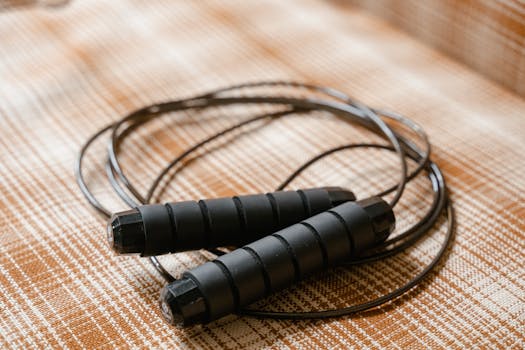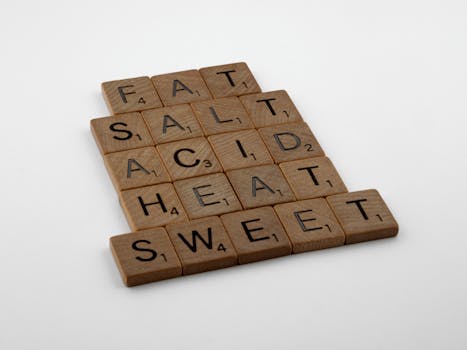Vitamins for Menopause Fatigue: Boost Energy Naturally
Nov 19, 2024
Menopause is a natural transition that every woman goes through, but it can bring about a myriad of changes, including fatigue. As hormone levels fluctuate, many women find themselves feeling more tired than usual, making it challenging to maintain their daily routines. Fortunately, incorporating certain vitamins and minerals into your diet can help combat menopause fatigue and support overall health during this phase of life.
Understanding Menopause Fatigue
What is Menopause Fatigue?
Menopause fatigue refers to the overwhelming tiredness and lack of energy that many women experience during menopause. This fatigue can be attributed to hormonal changes, sleep disturbances, and other physical and emotional factors that occur during this transition.
Causes of Fatigue During Menopause
Hormonal Changes: The decline in estrogen and progesterone levels can lead to fatigue, as these hormones play a crucial role in regulating energy levels.
Sleep Disturbances: Hot flashes, night sweats, and other sleep disruptions can lead to daytime fatigue and decreased energy levels.
Stress and Anxiety: The emotional changes and stress associated with menopause can contribute to feelings of fatigue and exhaustion.
Nutritional Deficiencies: A lack of essential vitamins and minerals can exacerbate fatigue and make it harder to cope with the physical and emotional changes of menopause.
Key Vitamins for Menopause Fatigue
1. Vitamin B12
Vitamin B12 is essential for energy production and the formation of red blood cells. During menopause, women may experience a decline in B12 absorption, leading to fatigue and other symptoms.
Benefits of Vitamin B12:
Supports energy levels and combats fatigue
Aids in the production of red blood cells, preventing anemia
Improves mood and cognitive function
Sources of Vitamin B12:
Meat, fish, and poultry
Eggs and dairy products
Fortified cereals and plant-based milk
Supplements (for those following a vegan or vegetarian diet)
2. Vitamin D
Vitamin D plays a crucial role in calcium absorption and bone health, which is particularly important during menopause when bone density decreases. Additionally, vitamin D has been linked to improved energy levels and reduced fatigue.
Benefits of Vitamin D:
Supports immune function and bone health
Enhances mood and reduces the risk of depression
May help alleviate fatigue and improve energy levels
Sources of Vitamin D:
Sunlight exposure (with proper sun protection)
Fatty fish (salmon, mackerel, tuna)
Fortified foods (milk, orange juice, cereals)
Supplements (especially for those with limited sun exposure)

3. Vitamin E
Vitamin E is a powerful antioxidant that can help reduce oxidative stress and inflammation, which may contribute to fatigue during menopause.
Benefits of Vitamin E:
Supports skin health and may alleviate hot flashes
Improves overall energy levels and combats fatigue
Provides antioxidant protection against free radicals
Sources of Vitamin E:
Nuts and seeds (almonds, sunflower seeds, hazelnuts)
Spinach and broccoli
Vegetable oils (sunflower oil, olive oil)
Supplements (for those with low dietary intake)
4. Vitamin C
Vitamin C is an essential nutrient that plays a vital role in collagen production, immune function, and overall health. It can also help combat fatigue by supporting energy levels and aiding in iron absorption.
Benefits of Vitamin C:
Boosts the immune system and supports overall health
Aids in iron absorption, preventing anemia and fatigue
Supports skin health and energy levels
Sources of Vitamin C:
Citrus fruits (oranges, lemons, grapefruits)
Berries (strawberries, blueberries, raspberries)
Bell peppers, broccoli, and tomatoes
Supplements (for those with low dietary intake)
5. Magnesium
While not a vitamin, magnesium is a vital mineral that can help alleviate fatigue and improve sleep quality, which is essential for combating menopause-related fatigue.
Benefits of Magnesium:
Supports muscle and nerve function
Helps regulate sleep patterns and improve sleep quality
Reduces anxiety, stress, and muscle cramps
Sources of Magnesium:
Leafy greens (spinach, kale, Swiss chard)
Nuts and seeds (pumpkin seeds, almonds, cashews)
Whole grains (brown rice, quinoa, oats)
Supplements (for those with low dietary intake)
How to Incorporate These Vitamins into Your Diet
Balanced Diet
To combat menopause fatigue effectively, it's essential to maintain a balanced diet rich in the vitamins and minerals mentioned above. Here are some tips:
Eat a Variety of Foods: Include a diverse range of fruits, vegetables, whole grains, lean proteins, and healthy fats in your diet to ensure you're getting a wide range of nutrients.
Consider Supplements: If you're unable to get enough vitamins and minerals through diet alone, consider taking supplements after consulting with a healthcare provider.
Stay Hydrated: Drink plenty of water to support overall health and energy levels.
Meal Ideas
Here are some meal and snack ideas to help you incorporate these essential vitamins and minerals into your daily routine:
Breakfast: Scrambled eggs with spinach and whole-grain toast topped with avocado.
Lunch: Quinoa salad with mixed greens, cherry tomatoes, grilled chicken, and a drizzle of olive oil.
Dinner: Baked salmon with steamed broccoli and brown rice.
Snacks: Almonds, Greek yogurt with berries, or carrot sticks with hummus.

Lifestyle Changes to Combat Menopause Fatigue
In addition to dietary changes, certain lifestyle modifications can help alleviate fatigue during menopause and improve overall well-being.
1. Regular Exercise
Engaging in regular physical activity can boost energy levels, improve mood, and promote better sleep. Consider incorporating activities like walking, swimming, or yoga into your routine. For more tips on staying active, check out our blog on how a pedometer encourages a physically active lifestyle.
2. Quality Sleep
Prioritize good sleep hygiene by creating a relaxing bedtime routine and ensuring your sleep environment is comfortable. If you're struggling with sleep, explore our insights on burning 400 calories daily for sustainable weight loss, which can also help improve sleep quality.
3. Stress Management
Incorporate stress-reducing activities like meditation, deep breathing exercises, or hobbies that you enjoy. Managing stress can significantly impact your energy levels and overall well-being during menopause.
4. Stay Social
Maintain social connections with friends and family. Engaging in social activities can boost your mood, reduce stress, and provide a sense of support during this transition.
Conclusion
Menopause fatigue can be a challenging and overwhelming experience, but incorporating the right vitamins and making lifestyle changes can help alleviate symptoms and regain your energy. Vitamins B12, D, E, C, and magnesium are essential for supporting energy levels and overall health during this transition. At Tidalflow, we understand the unique challenges that women face during menopause. Our AI-powered personal training solutions can help you create a personalized wellness plan tailored to your needs. Explore how our services can empower you to take control of your health and well-being today!
Disclaimer: This article is for informational purposes only and does not substitute professional medical advice. Consult a healthcare provider for personalized recommendations.
You should not have to do it all on your own













